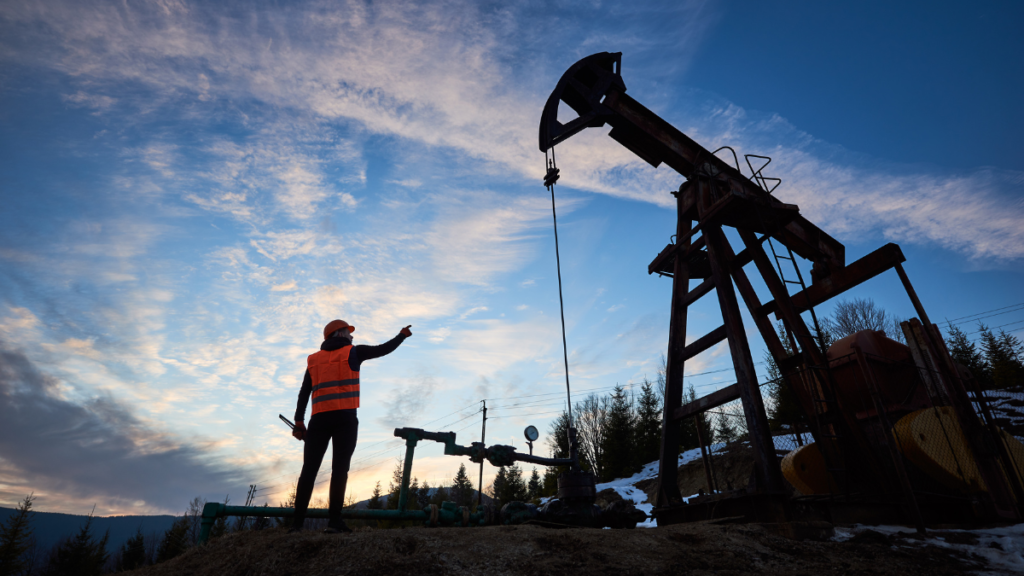In the lead-up to the COP28 climate summit, leaked documents have emerged, revealing potential plans by the United Arab Emirates (UAE) to engage in new oil and gas deals with foreign nations. The cache of confidential documents, published by the Centre for Climate Reporting, allegedly outlines strategies the UAE intended to employ during the summit, notably involving discussions on oil and gas projects through the state-owned Abu Dhabi National Oil Company (ADNOC).
These revelations have sparked concerns about the UAE’s intentions to leverage the summit for economic interests in the oil and gas sector, raising questions about the alignment of such discussions with the summit’s focus on climate action and sustainability.
The cache of documents, released by the UK-registered Centre for Climate Reporting, purportedly consists of briefing notes for Sultan Al Jaber, set to preside over the UN climate negotiations. These notes detail country profiles, encompassing climate progress, renewable energy uptake, and startling suggestions for potential oil and gas ventures with Abu Dhabi National Oil Company (ADNOC), led by Al Jaber.
Despite the company’s denial of using the climate talks for self-promotion, the documents reveal proposals to expand oil and gas production, particularly alarming as ADNOC plans growth while Al Jaber oversees the summit.
However, along with oil and gas propositions, the notes also highlight plans to promote renewable projects under Masdar, headed by Al Jaber as well, sparking concerns over the impartiality of these discussions.
While the authenticity of the meetings remains uncertain, revelations from the leaked notes underscore potential agendas behind the official discussions, hinting at discussions concerning liquefied natural gas (LNG) deals, hydrogen imports, and partnerships for energy security.
The leaked briefs encompass various countries, including Germany, China, Brazil, Azerbaijan, and others, raising questions about potential energy collaborations amid climate talks. Notably, Germany’s Federal Foreign Office acknowledged close contact with the COP28 presidency but refrained from commenting on specific business discussions with ADNOC or Masdar.
Amidst increasing global urgency for climate action, these revelations spark outrage, with concerns raised over conflicts of interest and impartiality in critical climate discussions. Greenpeace International condemned the purported content of the briefings, labeling them “totally unacceptable” and underscoring the summit’s pivotal role in addressing the climate crisis.
As COP28 approaches, these leaked documents pose critical questions about the integrity of discussions, highlighting the fine line between climate action and economic interests, urging the Presidency to navigate these discussions impartially for meaningful climate progress.
COP28 refers to the 28th Conference of the Parties, a significant international climate summit held under the United Nations Framework Convention on Climate Change (UNFCCC). It brings together countries from across the globe to discuss and negotiate actions to combat climate change. The conference aims to facilitate agreements and decisions regarding climate policy, mitigation strategies, adaptation measures, and funding to address the global climate crisis.
As for its schedule, the exact timing of COP28 hasn’t been officially confirmed yet. The conference typically occurs annually, and the specific dates for COP meetings are determined by the UNFCCC.
The participation in COP28 will likely include representatives from almost every country around the world that are signatories to the United Nations Framework Convention on Climate Change (UNFCCC). This encompasses over 190 countries, each sending delegates, negotiators, policymakers, scientists, environmentalists, activists, and various stakeholders to engage in discussions, negotiations, and decision-making processes related to climate change. Additionally, international organizations, NGOs, and observers often attend to contribute expertise and advocate for specific climate-related issues.
In conclusion, Crafting an extensive conclusion for the COP28 summit’s situation involving the leaked notes and their implications for the conference’s integrity involves summarizing and addressing the multifaceted aspects:
The revelations of leaked documents concerning the COP28 summit, indicating plans by the United Arab Emirates (UAE) to potentially use the event for oil and gas deals, raise complex ethical concerns. These revelations come amid heightened global urgency to combat climate change, making COP28’s integrity and impartiality crucial for meaningful progress. The leaked briefings, although unverified, cast doubt on the conference’s neutrality and adherence to UNFCCC codes of ethics, potentially undermining the credibility of climate negotiations.
The implications of these leaked notes, whether substantiated or not, raise profound questions about the intersection between economic interests, corporate agendas, and the imperative for collective climate action. It underscores the challenging balance between hosting nations’ economic ambitions, particularly in fossil fuel sectors, and their roles as leaders in international climate efforts. The potential discussions of oil and gas projects by COP28 organizers risk diluting the summit’s core mission of advancing climate solutions and could signal conflicting priorities between sustainability and economic interests.
Moreover, if the leaked documents’ content is validated, it could erode trust in the leadership of the COP28 presidency and amplify concerns regarding conflicts of interest, affecting the conference’s credibility and the legitimacy of decisions made. The leaked briefings prompt a call for heightened transparency, accountability, and stringent adherence to ethical guidelines, ensuring that COP28 remains a platform solely dedicated to tackling the climate crisis without commercial or economic influences.
Ultimately, the leaked notes bring to the forefront the imperative for robust mechanisms to safeguard the integrity and neutrality of international climate negotiations, emphasizing the need for stringent adherence to UNFCCC codes of ethics. It serves as a critical moment for the COP28 presidency to uphold impartiality, reinforce trust among participating nations and stakeholders, and refocus the discussions on accelerating global climate action for a sustainable future.
In navigating the complexities arising from these revelations, the COP28 summit faces a pivotal juncture, necessitating proactive measures to reaffirm its commitment to impartiality, transparency, and genuine climate progress, thereby ensuring that the event serves as a catalyst for impactful and equitable climate solutions on a global scale.
